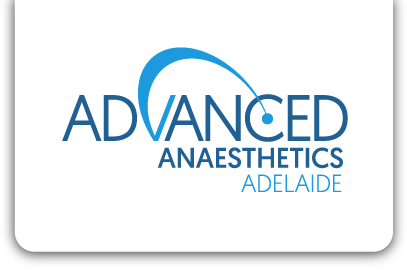We’re always here to help.
Risks of Anaesthesia and Sedation
Are anaesthetics safe?
In a word, yes. All medical interventions require assessment and minimisation of risk. Anaesthesia is an area in which enormous improvements in safety and patient comfort have occurred.
Minor discomforts such as pain or bruising from injections, dizziness and confusion are common and normally short lived. Nausea and vomiting remain a problem for some people, although surgery is often the cause. Modern anti-vomiting drugs are very helpful.
Life-threatening complications are rare. Australia is one of the safest countries in the world to have an anaesthetic. We have skilled staff, excellent facilities and modern anaesthetic drugs.
One of the most surprising problems is damage to your teeth! If you have a denture, crown, facing (veneer), implant, cap or loose tooth, tell your anaesthetist. Sometimes to help with your breathing, tubes or instruments need to be put in your mouth and teeth can be damaged. Your lips and throat may sometime be painful afterwards for similar reasons.
Your Anaesthetist stays with you during the procedure to make sure you stay safely asleep and that you wake with no difficulty. You will get advice about the procedure from your referring doctor or dentist, who may also give you some information about your sedation or anaesthesia. More information about risks and how you can help reduce them can be found below.
Fasting
Following the recommendations on the fasting information page is essential for your safety.
Recreational Drugs
If you use marijuana, heroin, ecstasy, speed or other drugs, tell your anaesthetist what you use and when you last used it.
Smoking
Smoking greatly increases the risks of surgery and anaesthesia.
Try to stop smoking at least 6 weeks before your procedure. If you can’t, at least cut down.
Smoking is strongly discouraged within 12 hours of surgery and anaesthesia.
Routine Medications
If you are on “fluid” tablets, for your convenience, you do not need to take them on the morning of the procedure. Most other medications should be taken as usual, with a sip of water. If you are unsure, ask your GP or anaesthetist.
If you are a diabetic on tablets or insulin, please see more information on the diabetes page.
For most surgical tooth extractions, it is best to stop aspirin and anti-inflammatory drugs a week before surgery, as they may cause increased blood loss (paracetamol does not). In some cases, the risk of stopping aspirin outweighs the risk of bleeding related to surgery.
Some drugs and medications can interact with anaesthetics. Tell your anaesthetist exactly what medications you are taking. Bring a list of all your medications with you, including what strength and when you take them.
Allergies
Allergies are a rare cause of life-threatening complications.
If you have any please let your anaesthetist know.
Anaesthesia uses many different drugs. We do not want to cause a reaction.
Needle Phobia
Most drugs are administered through the insertion of an intravenous cannula in your arm or hand.
If you have a needle phobia, please talk to your anaesthetist beforehand so alternatives can be prepared.
Memory and Awareness
During General Anaesthesia you are unconscious and should have no memory of anything. Very rarely some people experience some recollection of events during anaesthesia; mostly this is more like a dream.
During sedation, you may have some recollection of events during your procedure but you will be so relaxed by the sedation that you should feel comfortable.
If you have concerns about possible cognitive effects on your memory from anaesthetics, please ask your specialist anaesthetist to discuss your options.
Pregnancy and Breastfeeding
Special care needs to be taken if you are pregnant. There may be increased risks to you and your unborn child.
If you need to have an anaesthetic, the anaesthetist can advise you on the safest options. Very small amounts of anaesthetic drugs can be transferred in breast milk. If you are breastfeeding, you should discuss this with your anaesthetist. It may well be safe to continue your breastfeeding in the post-operative period.
Blood Transfusion
There is a small risk in receiving a blood transfusion. We try to avoid transfusion if possible.
Blood is carefully tested to reduce the risk of infection or transfusion reaction.
If you have religious or other objections discuss them with your surgeon and anaesthetist beforehand.
Major Complications
Fortunately, these are rare. Please ask your anaesthetist if you need more information.
After the Procedure
When you wake you may be given oxygen whilst you recover. At first, you may be sleepy and confused but this feeling will pass. This is generally due to after effects of drugs given while you were asleep, and should not last long. If you have any discomfort the nurses in the recovery ward will tend to you quickly. Each patient has an individual nurse in recovery.
Arrange for a responsible adult friend or relative to accompany you home.
We recommend you do not drive or drink alcohol for up to 24 hours after the procedure.
Strong painkillers may make you sleepy and unsafe to drive or operate machinery for even longer.
If you are unsure, check with your doctor.
Children and some adults can become very emotional for a few hours after anaesthesia. It is not unusual for them to cry or become irritable or angry until the drugs have worn off.
Need More Information?
Ask your surgeon to send a letter of referral for a consult with your anaesthetist before the procedure is scheduled.
If you have any problems, which you think may be due to the anaesthetic, call your anaesthetist for advice.
Other related webpages:


